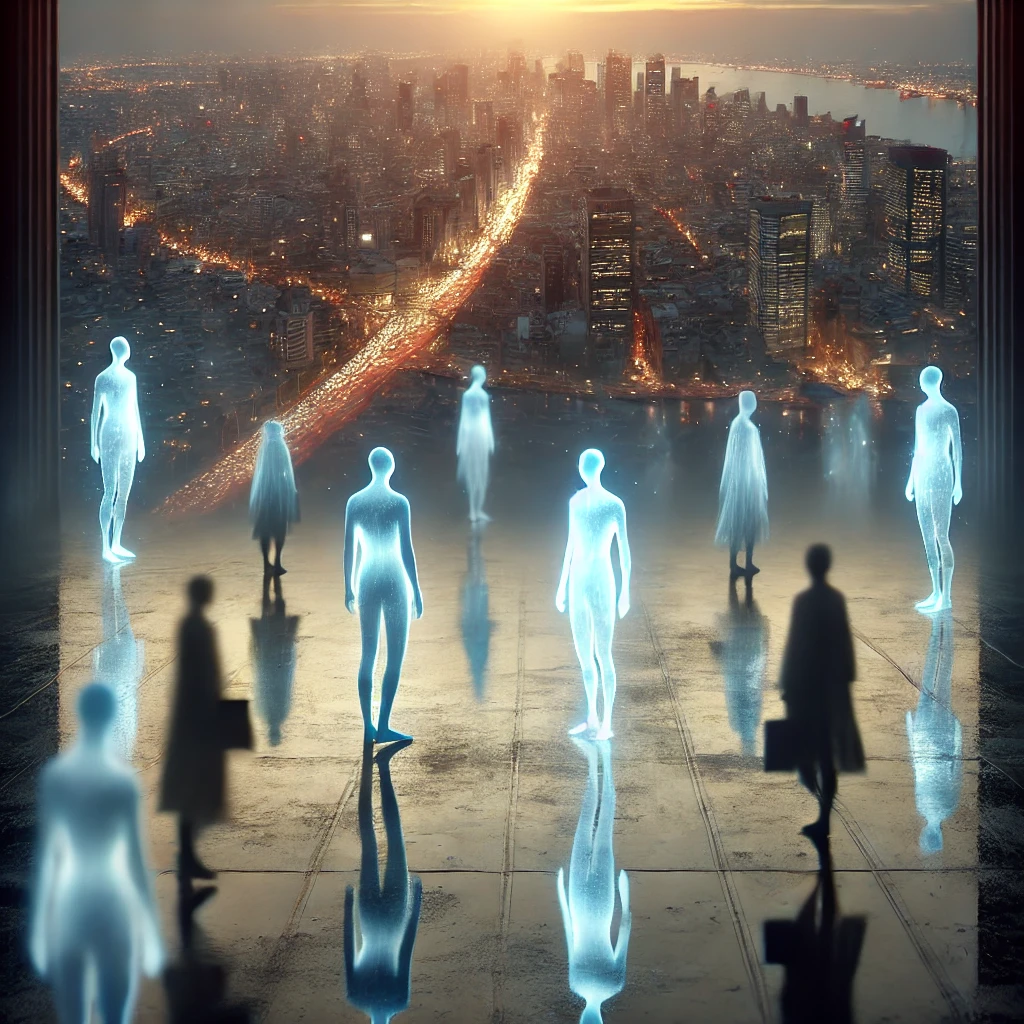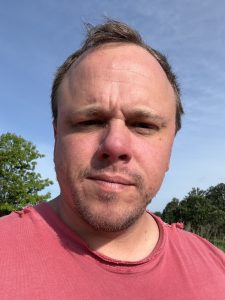
In the dim twilight between existence and oblivion, there stood those who watched—silent, patient, unmoving. They were neither gods nor mortals, but something in between, caught in a strange purgatory of being. They had witnessed the rise of humanity from its primal beginnings and had long since seen the inevitable descent of men into the abyss of “nothingness.” Yet they were not immune to this process. It clung to them, like a creeping vine, threatening to pull them into its depths as well.
And so, they watched—always watchful, always aware. In their timeless silence, they became the architects of their own survival, crafting elaborate systems of thought and observation to guard against the overwhelming urge to succumb to that which they observed. They called themselves the Watchers, and though they had no names, they were defined by their role, by their vigilance, by the very essence of their unwillingness to fade into the same void that consumed the beings they watched.
There were many of them, scattered throughout the worlds of men, invisible to the human eye, bound by no time but their own. And yet, they understood the ebb and flow of human existence with terrifying clarity. For they had seen the cycle play out countless times, as human beings, in their insatiable hunger for meaning, constantly circled the drain of comparison, of desire, of striving without end. The Watchers knew the cost of this pursuit—a cost that left nothing but hollow shells of those who once sought greatness.
“It is the comparison,” one of them spoke softly, its voice resonating in the air like a soft wind through barren trees. “They do not understand that in comparison, they cease to exist. They grasp for something greater, something more, and in that grasp, they lose themselves. To be enough, to be whole, is a foreign concept to them. They are always preparing for the bad, the inevitable fall, and in doing so, they build their own prisons.”
Another Watcher, standing a few paces to the left, turned its gaze to the human world below, where the creatures moved, unaware of their silent observers. “They cannot help it,” it mused. “It is how they are made. The need to be enough drives them to madness. And yet, in their madness, they are beautiful. They are the mirror of our own fears.”
“Are we not the same?” a third Watcher asked, its voice barely a whisper, like a thought in the wind. “Do we not too walk the same path, only in reverse? They seek relief in the wrong places—through comparison, through external validation—but we seek relief by turning inward, by holding ourselves apart from them. Yet how long can we hold on to this?”
The first Watcher did not answer immediately. It simply stood, observing, its essence mingling with the very air around it. It had long since understood the futility of trying to change the humans below. The cycle of seeking and failing was part of their nature. What the Watchers could not understand, however, was the desire to be free of it—to break from the cycle without succumbing to the nothingness that awaited them at the end.
“There is a truth we have missed,” the first Watcher finally said, its voice like the sound of a bell tolling in the distance. “They are not lost. They are not doomed. They are simply incomplete. They are trapped in their search for completion, never understanding that they are already whole. That is why they become nothing—their search is endless. They believe they must be more than what they are. And so, they are nothing, because in their quest for more, they forget to be.”
The second Watcher considered this, its form shifting like a shadow passing across the moon. “We too, in our vigil, have forgotten. We hold ourselves apart, thinking that by standing still, we protect ourselves. But what if this stillness, this detachment, is another form of comparison? What if we too are slipping into the same void, watching them spiral downward, afraid to move lest we too be consumed?”
The third Watcher, ever contemplative, finally spoke. “Perhaps it is not the act of comparison that consumes them, but the refusal to see what is already within them. They fear that they are not enough, and in that fear, they reject the possibility of acceptance. That is the root of the nothingness—the refusal to accept the self as it is.”
And so, the Watchers continued their silent observation, caught in the delicate dance of witnessing and understanding. They saw the humans below, struggling against their own reflections, yearning for something they could never name, never grasp. But the Watchers knew, deep within their hearts, that the answer lay not in the search for more, but in the acceptance of what was.
In the quiet, they too had to learn the hardest lesson—the acceptance of their own role, their own place within the cycle. For they, like the humans, were creatures of the wheel. And if they too refused to accept their own place within the dance, they would become nothing as well.
As the night deepened, the Watchers stood together, silent and still, understanding that to watch was both their curse and their gift. The cycle of life, of striving, of becoming and unbecoming, would continue. But perhaps, just perhaps, in their quiet understanding, they could find a peace that had always eluded the world below.
